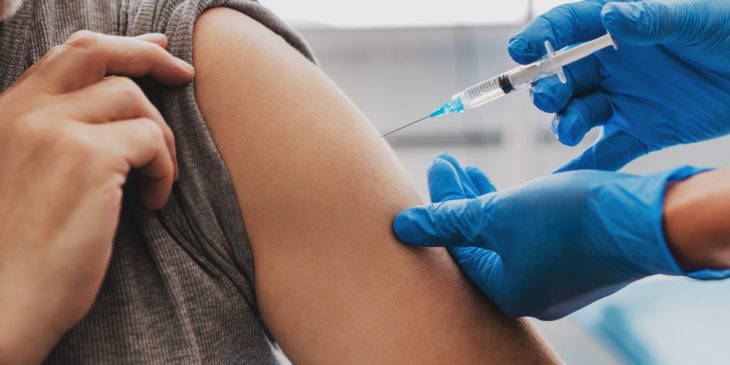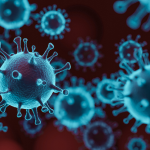Tuesday morning, federal health officials called for a pause in using the coronavirus vaccine developed by Johnson & Johnson, while they investigate a rare blood clotting disorder that may be linked to the vaccine. UPMC quickly adopted the guidance, pivoting to the Moderna and Pfizer vaccines for scheduled appointments.

Dr. Richard Zimmerman
The blood clotting events that were observed are extremely rare, University of Pittsburgh health sciences and UPMC experts agreed. Only 6 cases were reported in nearly 7 million people vaccinated with the Johnson & Johnson vaccine, all of them in women younger than 50.
“It looks like the blood clots occur between the first and the second week after the vaccination – and if you’ve been vaccinated more than two weeks ago, there is nothing to be concerned about,” said Dr. Richard Zimmerman, a professor of family medicine and public health at Pitt, and a former member of the U.S. Centers for Disease Control and Prevention’s Advisory Committee for Immunization Practices.
“But if you got your shot recently and are having symptoms such as shortness of breath, headache or stomach pain, you should call your health care provider and let them know that you recently received the Johnson & Johnson vaccine. They will guide you on the best course of action,” said Dr. Sharon Riddler, director of clinical research in Pitt’s Division of Infectious Diseases.

Dr. Sharon Riddler
Pauses like these are uncommon but not unheard of. The experts note that the fact that there was a pause is indication that authorities are closely monitoring the vaccines for safety and the system is working.
“The concern was sufficient for the FDA to recommended pausing administering this vaccine while they investigate these events further,” said Riddler, also a principal investigator of a local COVID-19 vaccine trial. “But the blood clotting events that were reported are extremely uncommon.”
Right now, millions of people are receiving vaccines at a rapid pace, and while the clinical trials to test the vaccines’ safety include tens of thousands of people, they are still not large enough to detect extremely rare “one in a million” events.

Dr. Patrick Moore
“This vaccine has received an emergency use authorization, and because it is so important to convince people that public health professionals are working in the public’s best interest, they want to make sure the vaccine is as safe as can be,” said Dr. Patrick Moore, a virologist at the UPMC Hillman Cancer Center who was a voting member on the U.S. Food and Drug Administration’s Vaccines and Related Biological Products Advisory Committee that unanimously approved the Johnson & Johnson vaccine. “The FDA and the CDC will use that time to understand the risks and to convey them to the public.”
The experts from the FDA will spend the next week carefully combing through the data to find out if these events are connected and if there is a plausible explanation of how this vaccine can cause blood clots.
“People need to understand that these events aren’t occurring in the context of a study where information is available quickly and comprehensively,” said Riddler. “These reports are coming from individual hospitals, and those reports often don’t have enough detail. The pause will give the FDA some time to get those details and to investigate.”
The expert are unanimous that so far, it looks like the risks of getting infected with the coronavirus far outweigh the risks of getting seriously ill from getting the vaccine.
“There are about a million people living in Allegheny County. If every single one of them, including children, were vaccinated with the Johnson & Johnson vaccine, we would expect to see one case of this rare blood clotting,” said Moore, also a distinguished professor of microbiology and molecular genetics at Pitt. “Without a doubt, that would be a true tragedy, but over the past year we have had nearly 100,000 of cases of COVID-19 and more than 1,800 people died from it in Pittsburgh alone.”
“You are 1,800 times more likely to die from COVID than to get seriously ill from the vaccine, and you are 100,000 times more likely to get seriously ill after being infected with the virus than getting sick from getting the shot,” Moore emphasized.
It’s important to be able to provide people with a clear understanding of the process for assessing safety of vaccines so that they will be assured that the vaccines are safe and that they should get vaccinated, the experts agreed.
The good news is — there is a safety monitoring mechanism built into the system of vaccine rollout and the pause is not the cause for alarm.
“In fact,” Riddler said. “People should be reassured that the system is working.”








